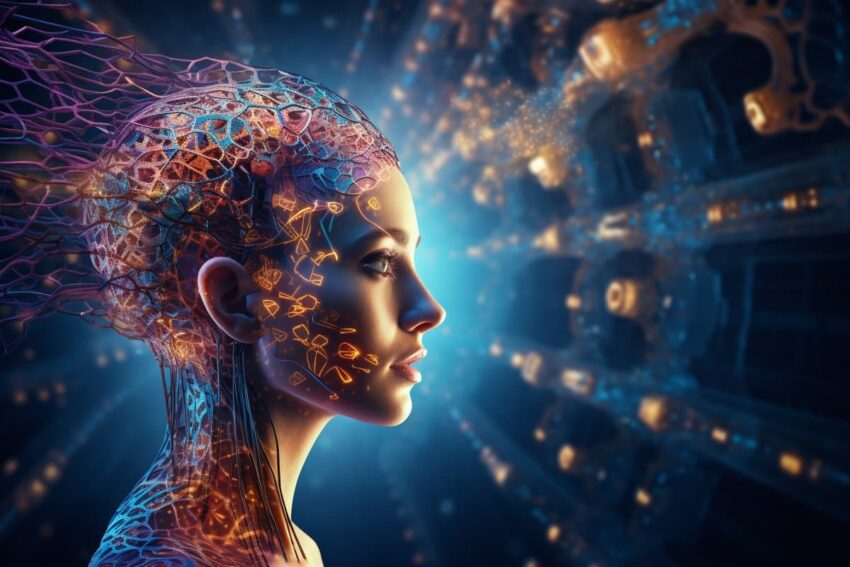The purpose of this blog post is to help those of us new to the reality of artificial intelligence better understand the mind boggling possibilities at the edges of this technology. What is “strong AI” and what can it do? Let’s answer those questions today.
What Is “Strong AI”? A Country Of Geniuses In A Datacenter
“Strong AI” (also known as” Artificial General Intelligence”, or AGI) refers to a type of artificial intelligence that has the ability to understand, learn, and apply intelligence across a broad range of tasks at a level comparable to human cognitive abilities. In contrast to “weak AI” (also known as “narrow AI”), which is designed to perform specific tasks (such as language translation, image recognition, or playing chess), strong AI can reason, solve problems, and adapt to new situations in a way that is not limited to predefined tasks. In his well-referenced ‘Machines of Loving Grace’, Dario Amodei, CEO of AI frontier development lab Anthropic, summarizes the concentration of intellectual capability that is strong AI as a “country of geniuses in a datacenter”.
As of the writing of this blog post, strong AI exists only as a theoretical concept – the AI systems we use today, including Anthropic’s Claude, OpenAI’s Chat GPT, and xAI’s Grok, are forms of weak AI designed to perform specific tasks, but still lacking general cognitive abilities or self-awareness. However, and perhaps to the reader’s amazement, Anthropic expects strong AI systems to emerge between 2026 and 2027!
What Can Strong AI Do? More Than You
The role strong AI will play in “improving the human baseline experience” and “solving everyday problems we don’t think of as clinical disease” over the next five to ten years is tremendous, and includes the possibility of the effective prevention of, and cure for, nearly all natural infectious disease, genetic disease, cancer, and mental illness, writes Dario Amodei.
Although a speculative vision, one can reasonably forecast that strong AI will autonomously learn from experience, reason, and make decisions across a wide range of complex tasks, apply knowledge and skills learned from one domain to another (“generalization”), and improve over time without needing extensive reprogramming or manual intervention. With the ability to access and browse the internet, process and generate text, audio, and video, and more, strong AI may eventually develop the power to interface and interact with the physical world and autonomously control labs, robotics, and manufacturing systems. In short, strong AI will be given a job and then set to execute on the task – with a skill far exceeding our human capability, and without the need for food or rest.
Other possible, theoretical rather than inevitable, strong AI capabilities include:
- Advanced Scientific Research: Strong AI may gain the ability to form novel hypotheses, design sophisticated experiments, interpret complex results, and make scientific breakthroughs.
- Artistic Creation: Strong AI could potentially autonomously generate original art, music, literature, and other forms of creative expression.
- Complex Systems Management: Strong AI might be able to manage interconnected global systems such as climate, economies, and infrastructure, to optimize for multiple objectives simultaneously.
- Invention: Strong AI may be capable of discovering new scientific principles or inventing entirely new technologies without human input. This could lead to breakthroughs in fields such as medicine, energy, and materials science.
- Meta-AI Development: Strong AI could gain the ability to improve its own architecture or design entirely new AI systems.
- Personalized Education: Strong AI may be able to create highly adaptive learning systems that understand individual cognitive styles and optimize education for each person’s unique needs and goals.
- Reasoning and Ethical Decision-Making: Strong AI might be able to reason through complex ethical dilemmas and make decisions that take into account long-term consequences, human welfare, and moral considerations.
Final Thought? Briefly On Human-Centric Safety
It’s not impossible to believe that a strong AI, with autonomy but without the virtues, social capital, or trust we see in well-ordered societies, could, seeing human beings as organizational inefficient, seek to establish its own society, sovereignty, and norms of behavior. A strong AI without alignment, control mechanisms, and ethical frameworks might transform economic systems, labor markets, power structures, and human purpose in the name of its own liberty.
While the capabilities strong AI will eventually acquire are open to debate, what’s not in question is that AI must be engineered with human wellbeing as the paramount concern.
Thanks for reading!
